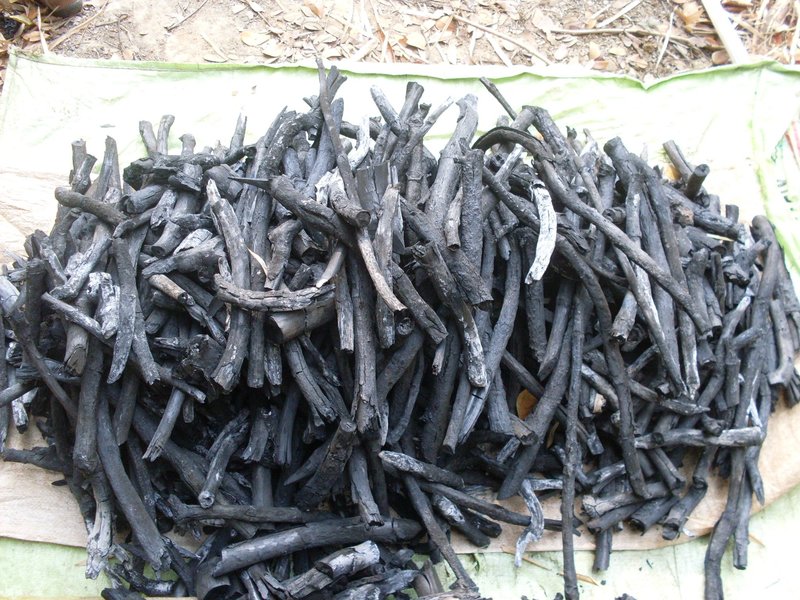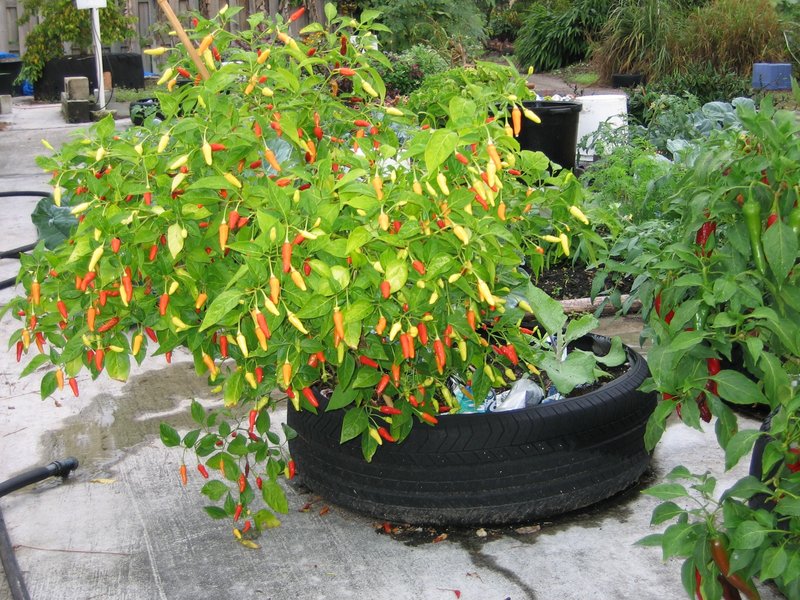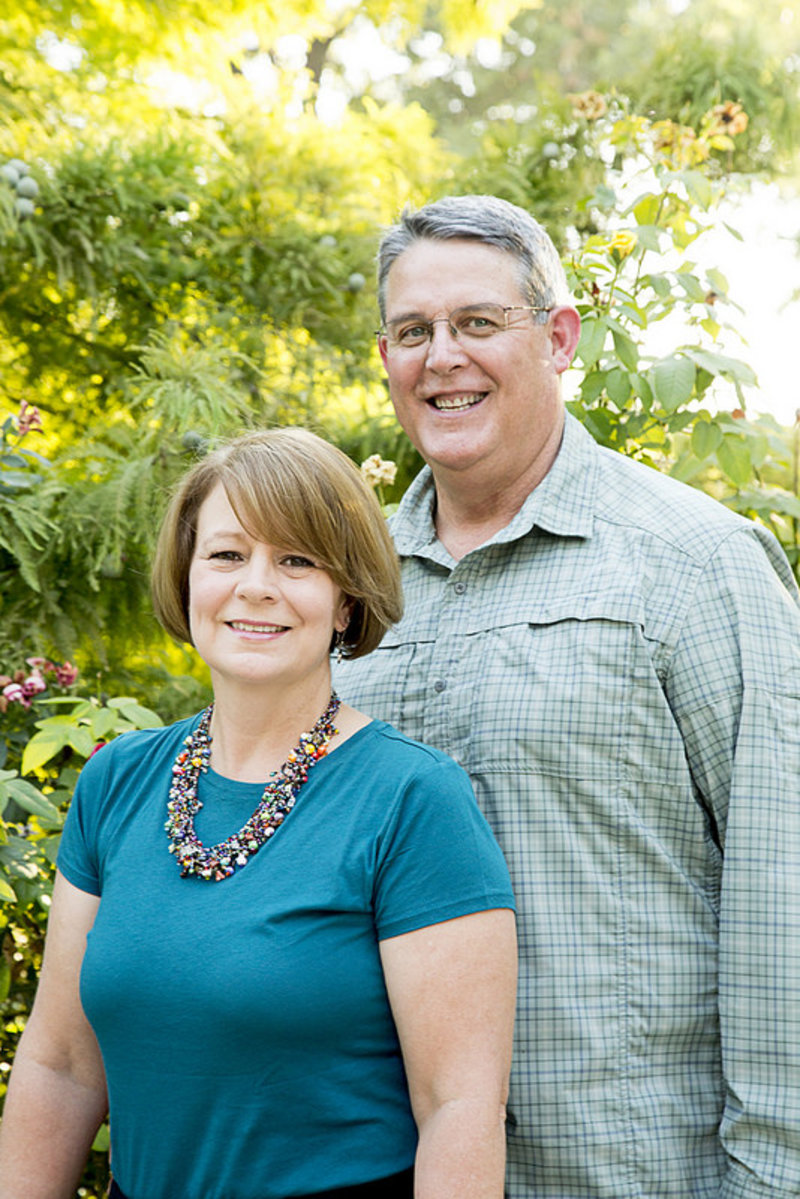Mises à jour de ECHOcommunity
ECHO TN#82: Le SRI, Système de Riziculture Intensive - Moins peut être plus 2016-02-26
Extrait : Le Système de Riziculture Intensive (SRI) est une méthode de culture du riz qui produit des rendements nettement plus élevés avec la plantation de beaucoup moins de semis et l’utilisation de moins d’intrants que les méthodes traditionnelles (c’est-à-dire d’inondation) ou les méthodes plus « modernes » (utilisant des engrais minéraux ou agrochimiques). Cette approche implique l’utilisation de diverses pratiques de gestion des plantes, du sol, de l’eau et des éléments nutritifs. Le SRI a été utilisé avec succès dans un certain nombre de pays et a été largement promu par le Dr Norman Uphoff avec l’Université de Cornel.
Qu’est-ce que le SRI ?
Le SRI implique l’utilisation d’une combinaison de pratiques de gestion qui optimisent les conditions de croissance des plants de riz, en particulier dans la zone racinaire. Il a été développé à Madagascar au début des années 1980 par le père Henri de Laulanie, un prêtre jésuite qui a passé plus de 30 ans à travailler avec les agriculteurs dans ce pays. En 1990, l’Association Tefy Saina (ATS) a été formé en tant qu’ONG malgache afin de promouvoir le SRI. Quatre ans plus tard, l’Institut international Cornell pour l’Alimentation, l’Agriculture et le Développement (en anglais CIIFAD), a commencé à coopérer avec Tefy Saina pour introduire le SRI autour du Parc National de Ranomafana dans l’est de Madagascar, soutenu par l’Agence Américaine pour le Développement International. Il a depuis été testé en Chine, en Inde, en Indonésie, aux Philippines, au Sri Lanka et au Bangladesh avec des résultats positifs.
A new pulse variety from the ECHO Global Seed Bank 2016-02-25
The FAO has named 2016 the Year of the Pulse. The ECHO Florida seed bank is now offering ‘Caqui’ pigeon pea seeds, a variety originally acquired from Agroforester Tropical Seeds in Hawaii. Pigeon peas are small bushing legumes that are drought tolerant and can be grown on a wide variety of soils. They are often used in intercropping, as hedgerows for windbreaks, and for shade for when establishing plantation crops. Being a legume, pigeon peas fix nitrogen and can be utilized to increase soil fertility. The foliage of pigeon peas makes an excellent livestock fodder and the stems can be used for firewood. Most notable are the edible peas, which can be shelled when young and green or harvested when mature as a dry bean
‘Caqui’ is a variety that performed very well on the global farm this winter. It is a long duration pigeon pea (about 200 days to harvest) and the branches were loaded with seed pods. If you are a member of ECHO Community (Active Development Worker or Individual Premium), you can order a trial packet of these seeds to try out in your area.
ECHO Note Technique #76 - "Production de charbon de bois dans des fours à tambour horizontaux de 200 litres" maintenant disponible en français 2016-02-18
Extrait: Jusqu’à récemment, le bois de chauffe était pris pour acquis dans le nord de la Thaïlande. Avec de vastes forêts pleines de nombreux types d’arbres, les ménages des hautes terres pouvaient se permettre d’être difficiles concernant le bois qu’ils utilisaient pour la cuisine.
Cependant, au cours des dernières années, de plus en plus de communautés font face à des restrictions d’accès aux produits forestiers en raison de la création de parcs nationaux. Dans de nombreuses régions, la déforestation causée par des activités agricoles, tels que l’intrusion des grandes plantations, entraîne également la réduction de l’accès au bois de chauffe.
Dans les communautés des hautes terres, les combustibles de cuisson de types commerciaux comme le propane ne sont pas facilement accessibles et abordables. Avec des choix limités, les communautés et les organisations de développement ont commencé à envisager les combustibles alternatifs.
Did you know? It's the year of the Pulse! 2016-02-18
The UN Food and Agriculture Organization (FAO) has announced that 2016 is the "International Year of Pulses." The FAO defines pulses as a type of leguminous crop that is harvest solely for the edible dry seed. Common examples include dried beans, lentis, and peas. Packed with nutrients; these crops deliver both a high protien content and high levels of soluble fiber. Pulses are an important crop for farmers when considering improving food security and marketability. Recommended by health organizations, pulses can be beneficial to people suffering with diabetes and various heart conditions.
Since pulses are nitrogen fixing, these crops are known for improving soil fertility and extending the productivity of the land. Pulses are appropriate for small-scale farmers, often utilized in techniques such as intercropping, rotational agriculture, and as cover crops. Their versatility promotes biodiversity and assists in the minimization of pests and some diseases.
How have pulses been an important part of your work? Share in the COMMENTS.
Additional resources on pulses:
- ECHOcommunity Plant Information Sheets (pulse category)
- The ECHO Global Seedbank offers trial pulse seeds worldwide
- The ECHO Asia Seedbank offers regionally specific trial pulse seeds to those working in Asia
- The FAO has a full website dedicated to pulse resources for 2016
School Garden Project Brings Hope to Refugee Students 2016-02-09
The elementary garden club at Dalat International School in Penang, Malaysia is reaching out to help Burmese Rohyngya refugees. The club meets once a week to learn about good gardening practices and the principles behind the hydroponics. The students have been working on a small portable hydroponics unit with which they grow two types of spinach: local and Brazilian spinach, and both are growing nicely.
Through their instructor, Lisa Munson, the students have provided support for sharing this hydroponics kit with a refugee school in Penang as a way to help the students there. The students have also have shared the knowledge they have gained about sustainable gardening from their hands-on exploration.
 Most of the plants at the refugee school are growing well and the students are assigned roles to care for the plants, which has been a positive opportunity for them. However, due to the issues surrounding the refugee situations, all the plants have to grow behind locked doors; there is a possibility that if plants are grown outside, they would be stolen. The indoor room condition has caused some of the plants to die, but moringa, basil, and spinach are still growing well.
Most of the plants at the refugee school are growing well and the students are assigned roles to care for the plants, which has been a positive opportunity for them. However, due to the issues surrounding the refugee situations, all the plants have to grow behind locked doors; there is a possibility that if plants are grown outside, they would be stolen. The indoor room condition has caused some of the plants to die, but moringa, basil, and spinach are still growing well.
More Resources:
- Some of the seeds for this project were sourced from the ECHO Asia Seed bank.
- Community garden resources and Community Garden Toolkit [PDF]
Resources on hydroponics
EDN Numéro 130 - Maintenant disponible 2016-01-25
Sommaire:
- Les contaminants des pneus dans une perspective de cultures en contenants
- Du papier Cyantesmo pour détecter le cyanure
- Utilisation efficace des ateliers dans la vulgarisation agricole
- Les Échos de Notre Réseau
- Banque de Semences d’ECHO: Semences de Légumes a Souligné [ PDF ]
- Livres, Sites Web et Autres Ressources [ PDF ]
- Évènements à Venir [ PDF ]
Extrait: Les contaminants des pneus dans une perspective de cultures en contenants
En essayant de trouver des contenants de plantation abordables dans les pays en développement, les organisations et les travailleurs ont partout favorisé l’utilisation d’une ressource de déchets facilement disponible: les pneus. Au fil des ans, beaucoup ont demandé à savoir si oui ou non les pneus contiennent des produits chimiques nocifs qui pourraient s’introduire dans vos cultures. Cet article a été écrit pour communiquer ce que nous avons trouvé après des recherches dans la littérature sur le sujet.
Une grande partie de la littérature sur le sujet se rapporte à des pneus qui ont été recyclés en petites particules. Comparativement à la paroi latérale d’un contenant en pneu, la surface du pneu en contact avec la terre de plantation est beaucoup plus grande avec de petits morceaux de caoutchouc. Une grande partie des informations disponibles se rapporte également à des toxines dans des cendres de pneus brûlés ou celles lixiviées à partir de matériaux de pneumatiques soumis à des solutions fortement acides. Les contenants de jardin en pneus ne sont pas bien sûr convertis en cendres. En outre, la terre utilisée pour faire pousser les plantes dans des pneus n’est presque pas aussi acide que les solutions souvent utilisées pour étudier les contaminants dans les lixiviats de pneus.
Néanmoins, les pneus contiennent bel et bien des quantités infimes de quatre métaux qui sont connus pour être toxiques pour l’homme. La plupart des discussions ci-dessous se rapporte à des éléments métalliques, mais il y a aussi une brève discussion sur les contaminants organiques. L’article se termine avec des pratiques suggérées pour rendre le jardinage dans les pneus aussi sûr que possible. Cet article ne vise pas à être exhaustif ou définitif. En fonction des commentaires et de ce que nous aurons appris, nous sommes ouverts à des articles de complément....
Télécharger et partager des notes de développement #130
ECHO Research Blog Update 2016-01-07
Dr. Tim Motis recently posted a follow up to his July 2015 post on ECHO's 2-4-2 maize/cowpea trial. This update presents some of the data that has been collected to date.
When the legumes were sampled in July, the above-ground biomass of both weeds and legumes were sampled. Weeds made up less than 3% of the biomass in cowpea and jackbean plots. Weed biomass in the mucuna plots was statistically similar to that with cowpea and jackbean. Legume biomass was greater with jackbean (2.9 tonnes per hectare) than cowpea (1.9 tonnes per hectare) and mucuna (1.6 tonnes per hectare)...
For the full results, methodology and charts read the full blog posting (Login Required).
Your feedback is appreciated, be sure to post in the blog post's comments.
Related Resources:
- Legume Intercropping: Trial Update (Dec 2015)
- Maize 2-4-2 Legume Intercropping: Trial Update (July 2015)
- Presentation poster by Bob Hargrave on this study prepared for the ECHO International Agriculture Conference in 2015
ECHOcommunity Member Spotlight: Charles and Melissa Johnson 2015-12-09
My wife, Melissa, and I first learned of ECHO and the training courses offered after we applied for a development position in Zambia with Presbyterian World Mission. Although my background is in agriculture and banking here in the U.S., I wanted to acquire more specific knowledge which would benefit our work in Zambia. Our expectations were exceeded, not only with regard to the course materials, but also with the new friends we made; friends who are on a similar journey.
Beyond the knowledge we’ve gained, we have made friends who we remain in contact with, sharing information, resources and experiences to benefit each other in our work. We are confident our work in Eastern Zambia will benefit from our ECHO experiences.
ECHO is excited to announce the 2016 Training and Events schedule. There are events in Asia, East Africa, West Africa, Central America/Caribbean, and North America.
In addition to our Tropical Agriculture Development: The Basics course, ECHO is pleased to offer three new tropical agriculture workshops for a total of five training opportunities next year.
Workshops, forums, conferences and training opportunities around the world can be found on the ECHOcommunity Calendar. ECHOcommunity members can add their organizations events to the calendar at no charge (some restrictions apply). To submit your event fill out the Contact Form.
Agriculture Extension with Community-Level Workers 2015-11-24
Lessons and Practices from Community Health and Community Animal Health Programs
By: Brian Flanagan as a USAID-funded Modernizing Extension and Advisory Services (MEAS; www.meas.illinois.edu) project
Active learning and exchange of knowledge are key to farmer adoption of beneficial agricultural innovations. Community health worker (CHW) and community animal health worker (CAHW) programs have led to a rich body of knowledge about extension, much of which is applicable to efforts aimed towards small-scale farmers. Drawn from the literature on these programs, this document captures key lessons and practices relevant to developing, implementing, and sustaining effective community agriculture extension endeavors. The objective of this paper is to inform and strengthen agricultural extension programs that provide services through community-level workers.
This paper reviews CHW and CAHW case studies, peer-reviewed articles, guidelines and project reports for purposes of identifying lessons and practices that could enhance the effectiveness of community extension worker programs. Lessons learned, as well as specific ways (practices) to apply those lessons, are identified for each of six developmental stages that the author found were characteristic of successful CHW and CAHW programs and relevant to agricultural community extension. Those six stages are: 1) designing a program, 2) recruiting and selecting of community workers, 3) training of community workers, 4) supervising of community workers, 5) scaling-up programs, and 6) sustaining programs over time. Key lessons and practices for each stage are listed in table form and then elaborated upon in the text.
EDN Numéro 129 - Maintenant disponible 2015-10-28
Sommaire:
- La permaculture dans le développement : Une introduction à la permaculture et son application dans le développement de l’agriculture
- Banque de Semences d’ECHO : La noix d’Inca (Plukenetia volubilis)
- Livres, sites web et autres ressources
Extrait: La permaculture dans le développement : Une introduction à la permaculture et son application dans le développement de l’agriculture
Le mot permaculture est mentionné avec une fréquence croissante dans les discours, les livres et les articles de magazine sur la durabilité et la sécurité alimentaire. Qu’est-ce que la permaculture ? Est-ce un mouvement ? Une philosophie ? Est-ce simplement un ensemble d’outils de conception ?
Dans cet article, je réponds à ces questions en regardant la permaculture sous divers angles. Tout d’abord, je décris brièvement l’histoire de la permaculture, ses éthiques sous-jacentes, ses principes clés et ses pratiques courantes. Puis je discute des critiques communes de la permaculture et explique les perspectives sous-jacentes qui façonnent son utilisation pour répondre aux besoins de nourriture, d’eau et d’abri de la communauté (c’est-à-dire, la lentille à travers laquelle un permaculteur voit le développement). Enfin, je partage comment la permaculture a influencé ma propre vie et mon travail, en tant que chrétien et en tant qu’agent de développement de l’agriculture.
Pour l'article complet sur la permaculture et comment il compte de l'écosystème et du système social dans son ensemble, ce qui facilite la bonne intendance, et de fournir une voie de la durabilité vrai, la résilience et l'abondance lirel'article complet.
Télécharger et partager des notes de développement #129









